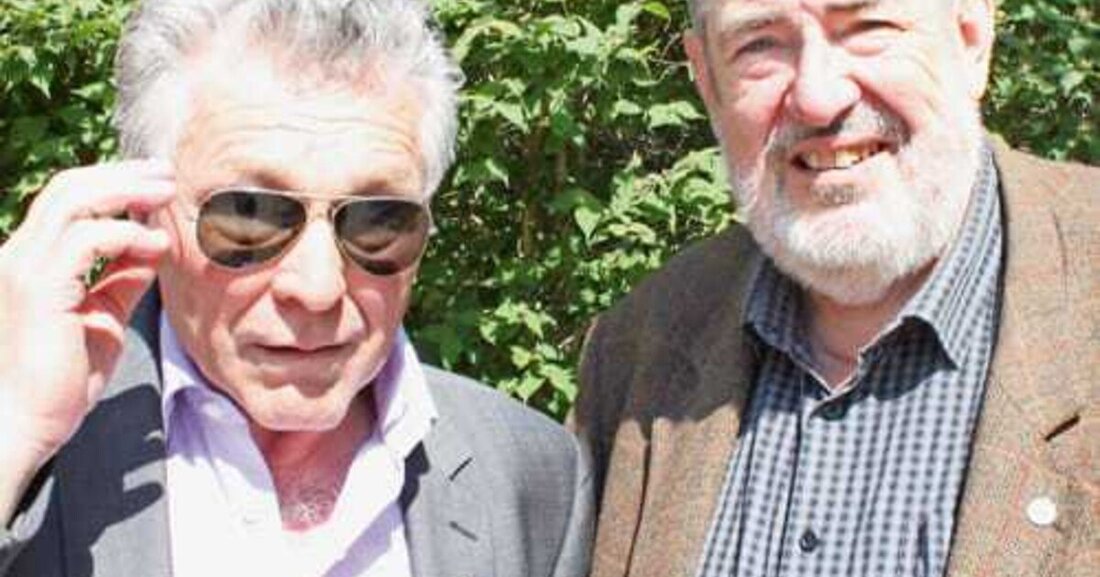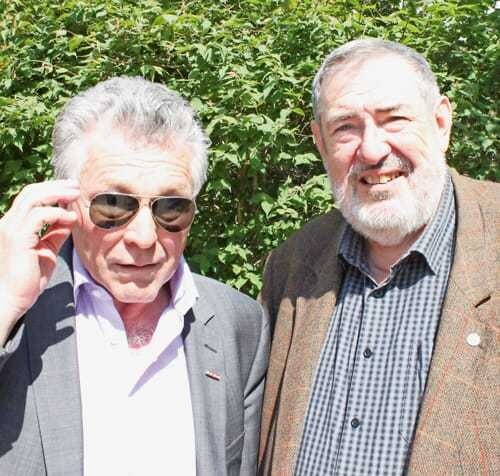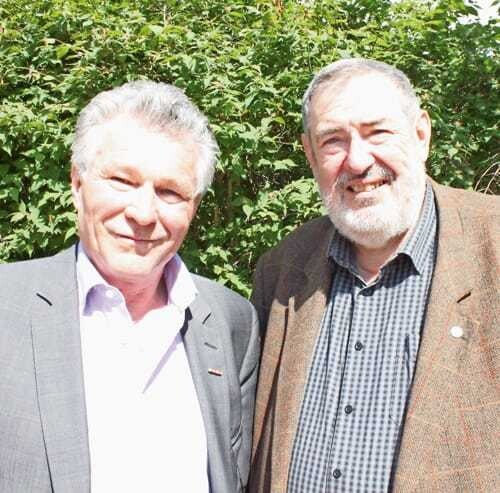Guild after the merger
The federal guild masters FRIEDRICH NAGL and ERIK PAPINSKI speak in the KFZ Wirtschaft interview about the merged guild, the GDPR and the problem of the shortage of skilled workers.

Guild after the merger


Automotive industry: The guilds of automotive technicians and body builders were merged under the umbrella of the federal “Vehicle Technology” guild. Your balance sheet?
Friedrich Nagl:A homogeneous group emerged. We complement each other perfectly. You can see this especially with the BIAS (Federal Guild Committee meetings, note.), there is constructive work being done. Not only when it comes to vehicle technology, but also when it comes to calibration or the subject of GDPR (General Data Protection Regulation, note.).
Erik Papinski:Friedrich Nagl and I have provided a solid foundation. Such strength is needed for all the challenges facing the industry. Together we are strong.
The coachbuilders often feared that they could be swallowed up by the “powerful” automotive technicians.
Papinski:The opponents have always spread this rumor. But there were negotiations on equal terms from the start. There are always lone wolves who believe that everything used to be better. But there are also people who still mourn the emperor.
"Our companies have already mastered greater challenges. They will also master the GDPR."FRIEDRICH NAGL, BIM VEHICLE TECHNOLOGY
GDPR topic: How do you answer companies who ask: Do I have to be afraid of May 25th? Papinski:Absolutely not. One thing is clear: data protection has always existed. you have to see the GDPR positively. What is happening now gives companies the opportunity to bring the existing data into shape and to use the treasure trove of data they have efficiently and optimally. I'm sure that many companies have data that they don't even know they have.
Nail:The federal guild offers its members a tool that covers all company sizes and is relevant for both automotive technicians and body builders.
Papinski:Six pilot companies - small, medium and large companies, multi-brand retailers, etc. - develop findings that are relevant for all sizes of company. This means we achieve coverage of over 80 percent. Our tool, which includes these findings, will be sent to companies in mid-May.
Nail:Our companies have already overcome greater challenges. You will also overcome this hurdle.
Papinski:We have broken the GDPR down to what it is. So that our companies can get their hands on a tool to be legally protected without much effort.
To what extent do companies suffer from the often cited shortage of skilled workers?
Papinski:For most companies, fears about their existence are based on the lack of skilled workers. If I no longer have any employees, I will no longer be able to accept any work.
What can be done about it? Nail:Training and master craftsman examinations must be given the status they deserve. Without business, everything stands still! Today you can no longer hire a skilled worker from just anywhere. Those times are over. The requirements today are much more complex and time-consuming. Almost all safety systems in modern vehicles are installed in the windshield. Like the panoramic glass roof, this also forms an essential supporting element of the body. Making car glazing an independent business, as was done as part of the commercial law reform, was a serious mistake.
Papinski:Countries such as Serbia want to provide training to the highest standards. In Austria there is a leveling down. Politicians say we have to upgrade teaching and industry and at the same time want to make everything free. We can learn logical thinking and common sense from the Serbs. We lost that. They have to have that because they don't have our tools and resources. A Serbian apprentice can't go to the boss and say: I can't put the screw on, buy this machine. He has to apply the screw without breaking anything. Our young people should learn this again.
“I miss media like Krone, Kurier or ORF when it comes to apprenticeship competitions.”ERIK PAPINSKI, BIM BODY BUILDER
Nail:We have to ensure that the craft remains a craft. Man must always remain human. Craft must always remain craft.
Papinski:We cannot throw out the truly manual activities from our training program. The automotive technician or bodyworker must not become a computer idiot. It's about convincing parents that crafts aren't a bad thing.
We already had the problem ten years ago that teaching does not have the status it deserves. Papinski:The problem has become even worse. In urban areas it is a big problem to get good people.
Nail:Anyone who has learned this profession, be it with a final apprenticeship examination or with a master's examination, would have to proudly say what they do at home, at the regulars' table, to their friends and acquaintances.
Papinski:When it comes to apprenticeship competitions, I miss media like Krone, Kurier and ORF. There is no recognition.
Mr. Nagl, your assessment of electromobility. Nail:The production of one battery generates 17 tons of CO2. How far do you think you can drive with a diesel? It is always said that by 2050 only electric cars should be on our roads. There are currently 4.9 million vehicles with combustion engines on the road. Every year there are around 300,000 new registrations. All of this is a milkmaid's bill that can never be paid off.

 Suche
Suche
 Mein Konto
Mein Konto